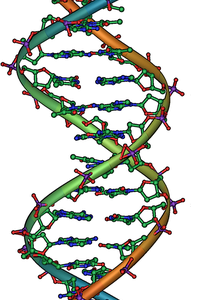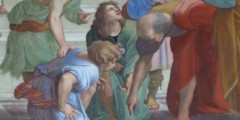Art and Science: the same thing?
September 11, 2012
“People with an interest in narrative tend to have a squiffy view of reality”. So says Ian McEwan, or rather, so says his character Professor Beard, the overweight Nobel Prize winner, intellectual has-been and compulsive womaniser of Solar. But for all Beard’s faults, there is something in his distrust of narrative imperialism, the tendency to …
From maths education to philosophy: what’s the story?
July 24, 2012
A report on this morning’s news claims that Britain does badly in the maths education stakes. Nothing new here really–we’ve been told how bad we are at maths education seemingly for decades now; the point today seems to be that lots of people doing engineering–and masses doing biology–have little maths in their schooling. In part …
Extremes, caricature and the difference between painting and literature
June 18, 2012
“I’m only interested in extremes” says Martin Amis in a recent interview with the Guardian. Do extremes work particularly well in literature? They seem to have worked well for Amis, but not every successful author in the modern age has shared his preference. Proust’s characters often have a certain eccentricity, and are often marked by …
Can we be serious about Harry Potter?
June 6, 2012
On Friday May 18th, The Telegraph had a sniffy article about a conference on Harry Potter as literature. Correspondent Sarah Rainey said: “If Dumbledore and Hagrid can be granted the status of Don Quixote and Hamlet, it’s alarming to contemplate what’s next. A dystopian interpretation of A Very Hungry Caterpillar? The Twilight series as an …




